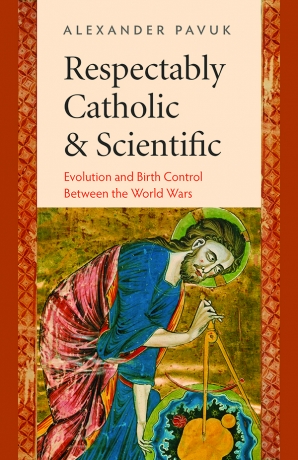Preparing your PDF for download...
There was a problem with your download, please contact the server administrator.
Respectably Catholic and Scientific
Evolution and Birth Control between the World Wars
Imprint: Catholic University of America Press
Respectably Catholic and Scientific traces the unexpected manner in which several influential liberal-progressive Catholics tried to shape how evolution and birth control were framed and debated in the public square in the era between the World Wars-- and the unintended consequences of their efforts.
A small but influential cadre of Catholic priests professionally trained in social sciences, Frs. John Montgomery Cooper, John A. Ryan, and John A. O’Brien, gained a hearing from mainline public intellectuals largely by engaging in dialogue on these topics using the lingua franca of the age, science, to the near exclusion of religious argumentation.
The Catholics’ approach was more than just tactical. It also derived from the subtle influence of Catholic theological Modernism, with its strong enthusiasm for science, and from an inclination toward scientism inherited from the Progressive Era’s social science milieu.
All three shared a fervent desire to translate the Catholic ethos, as they understood it, into the vocabulary of the modern age while circumventing anti-Catholic attitudes in the process. However, their method resulted in a series of unintended consequences whereby their arguments were not infrequently co-opted and used against both them and the institutional church they served.
Alexander Pavuk considers the complex role of both liberal religious figures and scientific elites in evolution and birth control discourse, and how each contributed in unexpected ways to the reconstruction of those topics in public culture. The reconstruction saw the topics themselves shift from matters considered largely within moral frameworks into bodies of knowledge and practice ripe for controlled scientific planning in movements ranging from birth regulation advocacy and social hygiene to eugenics.
Alexander Pavuk is associate professor of history, Morgan State University.
"A valuable contribution to the literature on U.S. Catholic history. It provides greater understanding of Catholic thought and the role of Catholics in American society and academia."
~Kathleen Tobin, Purdue University Northwest
"Adding the voices of liberal Catholic thinkers to a historical account of linked American debates over evolution, eugenics and contraception, Pavuk complicates a story often told through the lens of conservative Protestants. He reveals lasting ironies in those liberal Catholic thinkers’ embrace of science and the language of science, enlarging our understanding of the nuances of the debates, of their legacies, and of the complex historical relationship between science and religion."
~Constance Clark, Worcester Polytechnic Institute
"A welcome addition to scholarship about the specific ways Catholics encountered the scientific concepts that informed most sociocultural developments in the late nineteenth and early twentieth centuries: eugenics, evolution, and birth control..."Pavuk paints a rich picture of the American public forum in the United States between the world wars and just how central scientific thinking was to that landscape: so much so that even quite devout Catholics privileged its findings over their faith."
~Isis: History of Science Society
"Into this bloody moray of failures and progress steps Alexander Pavuk’s compelling and meticulous Respectably Catholic and Scientific. His volume is a rare find in his continuous and determined unveiling of stories that are uncomfortable in their complexity, impact, and moral weight. In Respectably Catholic, Pavuk follows the trials of three priests who had an outsized impact on the progressive Catholic intersections of science and culture in the early twentieth century."
~American Catholic Studies (ACHS)

